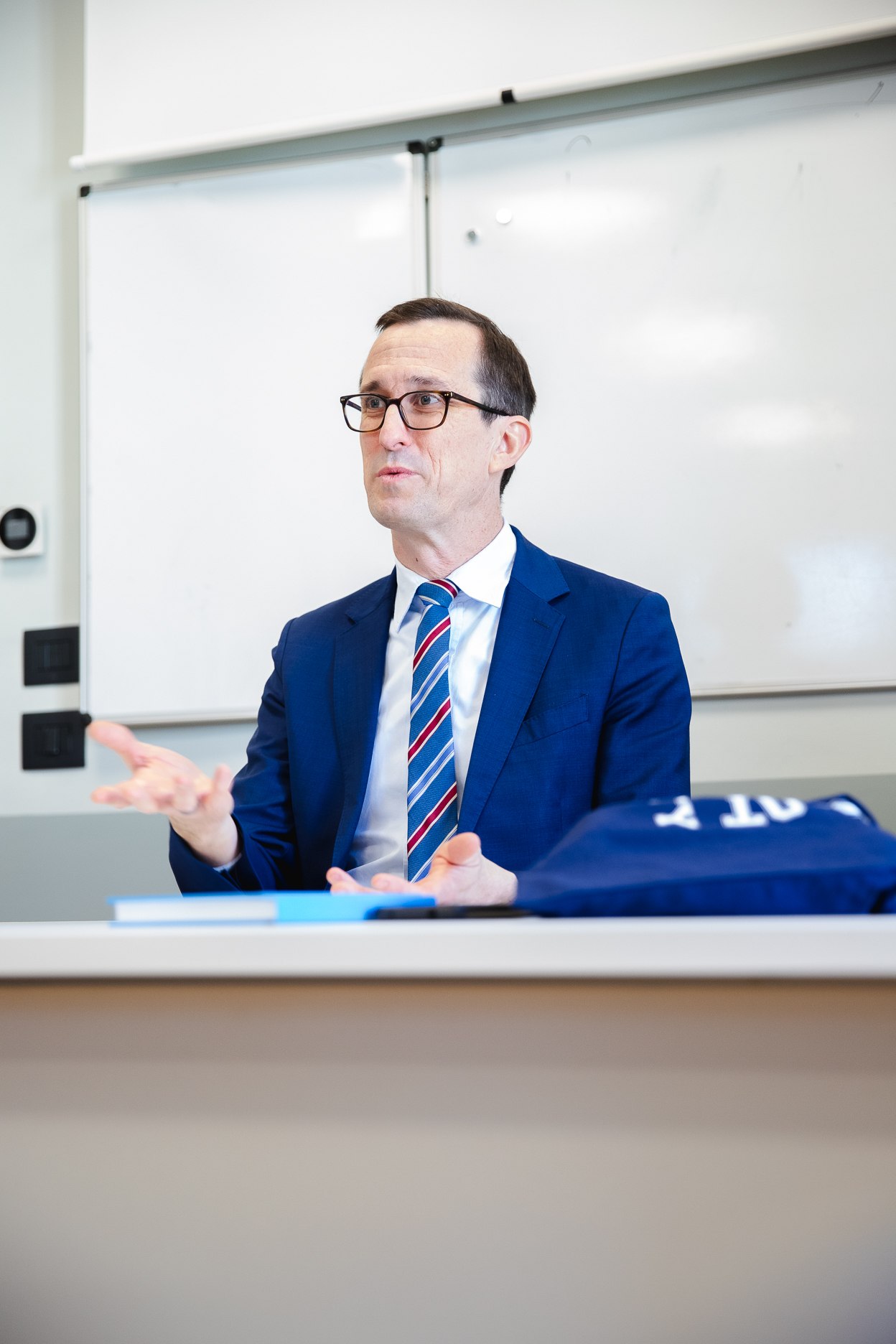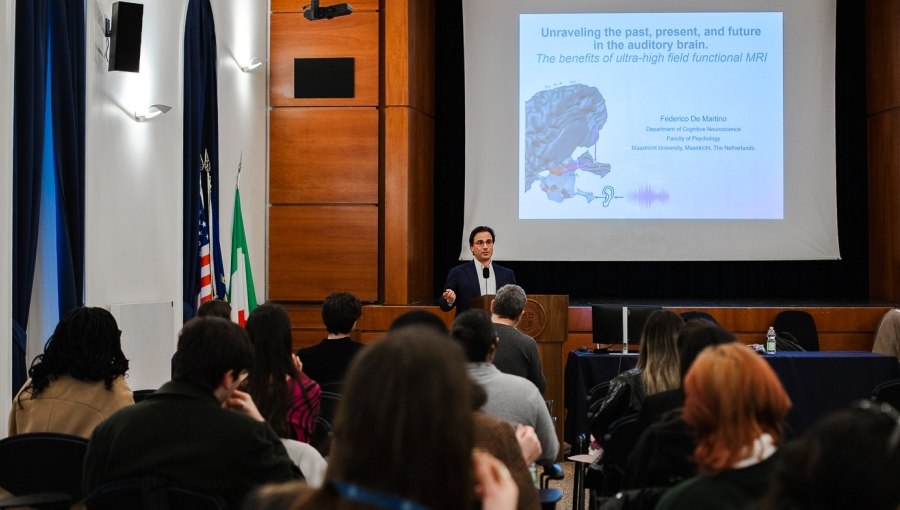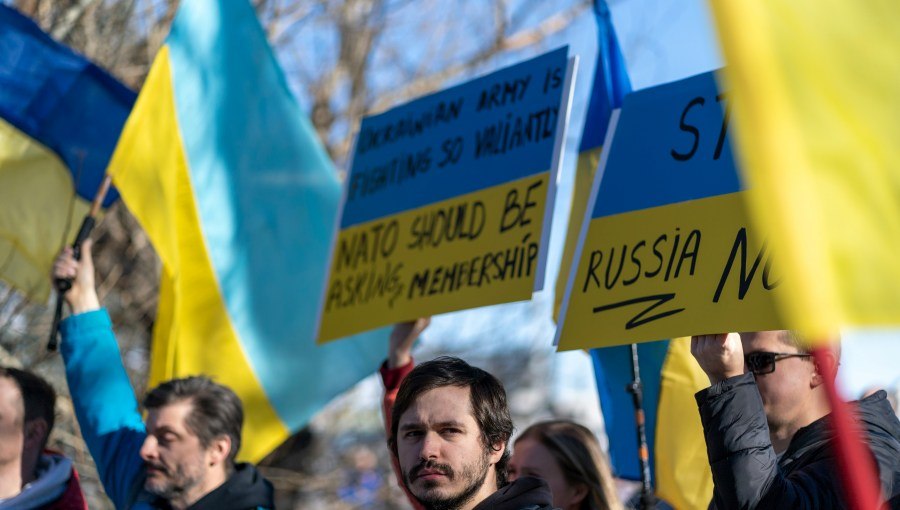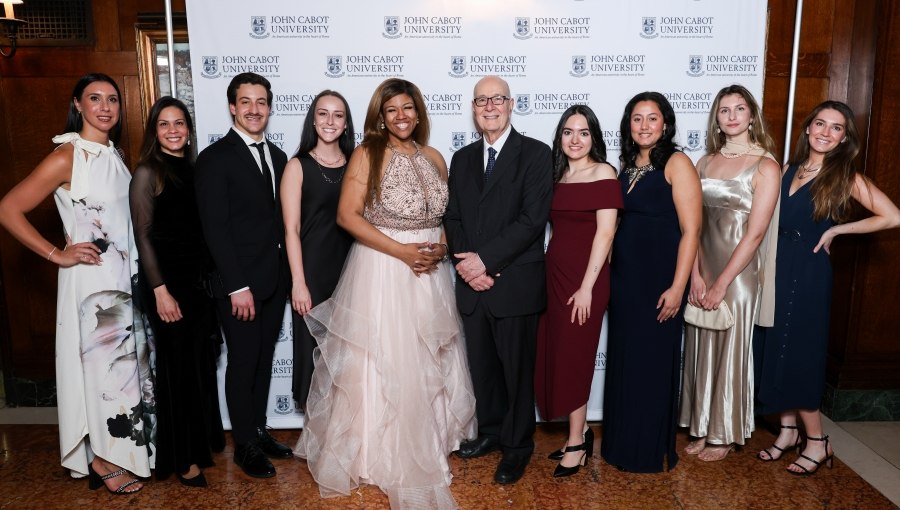JCU Welcomes U.S. Diplomat and Chargé d’Affaires Rodney Hunter
On Thursday, February 6th, JCU had the honor of welcoming Rodney Hunter, Chargé d’Affaires at the U.S. Mission to the UN Agencies in Rome, as a guest speaker for students of the M.A. in International Affairs. The talk was part of the Practicum in International Affairs course, through which JCU graduate students have the unique opportunity to engage with prominent professionals in the international relations field.

Rodney Hunter joined the U.S. Department of State in 2004, where he built an extensive career in global affairs and diplomacy. He holds a Bachelor’s in Fine Arts and subsequently pursued studies in public affairs and law. He served at the U.S. Embassies in Nepal (2004-2007) and Turkey (2008-2011), and has held various diplomatic positions in Iraq, Finland, the United States, and Italy. Hunter’s international experience also includes service as a Peace Corps volunteer in Bolivia from 1998 to 2000. Originally from Indiana, he speaks Spanish, Turkish, French, Italian, and Nepalese. Throughout his diplomatic career, Hunter has been actively involved in the protection of human rights.
The UN Agencies in Rome
The event began with an introduction to humanitarian assistance and the work of the U.S. Mission to the UN Agencies in Rome followed by a Q&A session. Hunter provided an overview of the Rome-based UN Agencies, known as the RBAs, which are the World Food Programme (WFP), the Food and Agriculture Organization (FAO), and the International Fund for Agricultural Development (IFAD). These three organizations complement and support each other in addressing global food security issues. While the WPF provides immediate assistance to those facing starvation through food distribution, the FAO takes the next step by creating stability and resilience in local communities worldwide, enabling them to provide for themselves and avoid emigration. IFAD is the ultimate step in tackling the global food crisis by channeling financial support and small loans to farmers.
Hunter emphasized how the United States is the largest donor to these international humanitarian organizations and how crucial it is to ensure the efficient use of U.S. taxpayers’ money in support of the UN’s humanitarian mission globally.
A Diplomat’s Guidebook
In talking about diplomatic challenges and key skills required for successful negotiations, Hunter highlighted the critical role that preparation has in diplomacy. To the graduate students he said: “Read extensively and stay informed. You become a great negotiator by understanding what you’re talking about. Put yourself in the other person’s shoes, anticipate their strongest arguments, and be ready with a response.”
However, he also affirmed that a good diplomat, whose voice represents an entire country, should not be afraid to slow down and ask questions, admit they don’t know something, and engage with people who can help. A diplomat is always on a mission: even informal gatherings and events are an opportunity to start discussions and negotiations of important matters with other parties.
(Susan Martirosyan)





